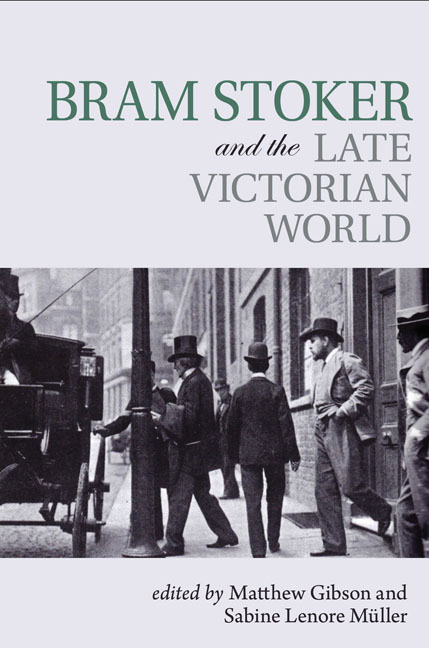8 - Black Eyes, White Skin: An Aristocratic or Royal Type in Bram Stoker's Writings
Summary
Important issues raised by Bram Stoker's writings, such as the “new woman,” Liberalism, the Egyptian Gothic, and anxieties relating to contemporary social and scientific theories have received cogent critical attention. Apart from analyses of Dracula, however, the issue of Stoker's treatment of the aristocracy or royalty in his writing has received scant attention, though David Glover does note, in passing, that Stoker’s texts typically show “extreme ambivalence concerning those of noble birth.” This chapter will first briefly situate Stoker in a political context and then present a chronological survey of a particular character type, a woman or man with black eyes and white skin, in order to assess Stoker’s presentation of aristocracy and royalty. Even though this character occurs in several novels, I agree with William Hughes when he says that Stoker is not simply repetitious. Hughes notes that when we see recurrences in Stoker these are “in essence, reworkings rather than simply replications. Each fresh occurrence, as it were, is modified by its contiguity to other issues, other signifiers and other texts.” This tendency in Stoker's fiction renders focusing on a particular character type as it recurs over time particularly instructive.
Bram Stoker in a Liberal Party context
Bram Stoker was born into the Irish Protestant middle class. Paul Murray proves conclusively that Stoker was not from an “Anglo-Irish” background, with its “aristocratic connotations,” as so many modern Stoker critics have contended. He was a life-long advocate for Irish Home Rule5 and a firm supporter of the Liberal Party and follower of Gladstone. The party itself, however, was a broad church, and deeply divided on the issue of the aristocracy, ravaged by “splits and divisions,” especially from the 1880s to the 1920s, with Radical anti-aristocratic elements as well as more moderate ones. Radical anti-royalist feeling often accompanied anti-aristocratic sentiment, though anti-royalism “remained a stance detached from the Liberal party, expressing a refusal [by the radicals] to accept the compromises of the existing party system.” Even so, as historian Antony Taylor argues, “anti-monarchism ‘had a very real meaning for many subjects of the throne’.” As such, the party provided scope for debate or consideration of these issues in a way that the Tory party did not, and we see this made manifest in Stoker's fiction.
- Type
- Chapter
- Information
- Bram Stoker and the Late Victorian World , pp. 177 - 194Publisher: Liverpool University PressPrint publication year: 2019



